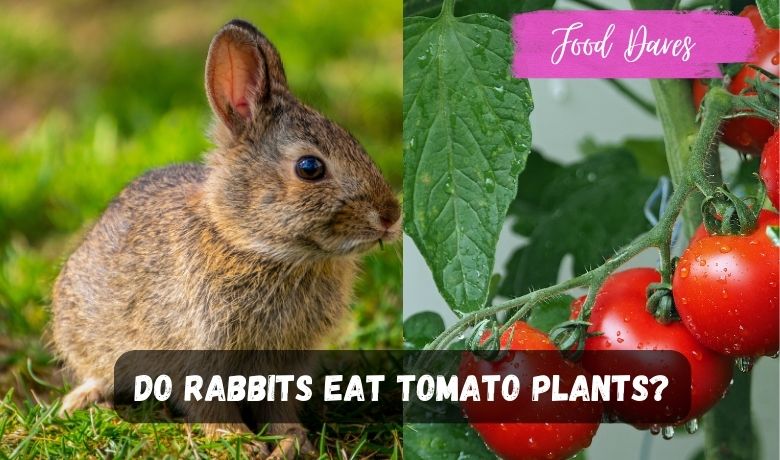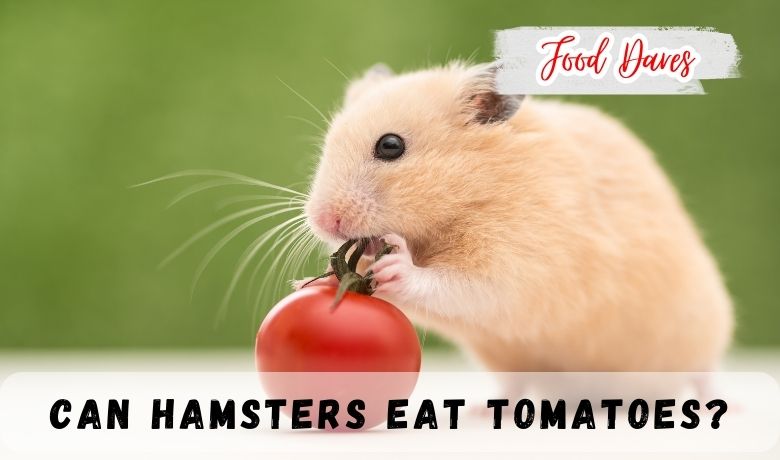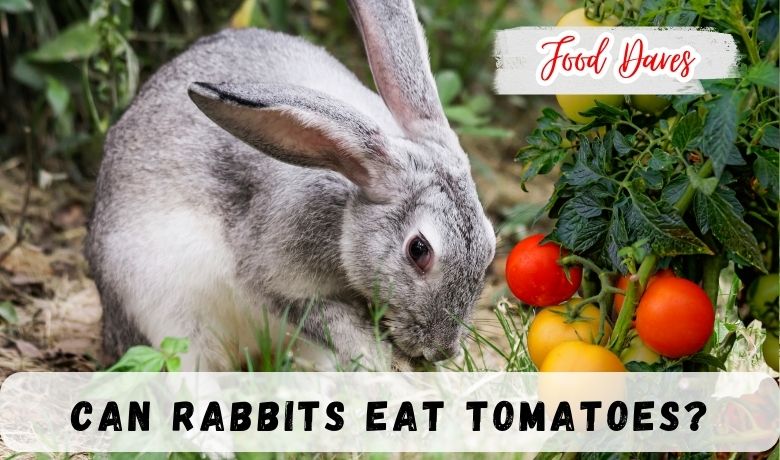Tomatoes are a popular crop in vegetable gardens, but unfortunately, they are also a favorite food of many animals, including rabbits. Gardeners who have had their tomato plants devoured by rabbits may wonder if it is possible to protect their crops. This has led to a great debate among gardeners and pet owners: do rabbits really eat tomato plants? Some people believe that rabbits avoid tomatoes, while others have witnessed rabbits chomping on the leaves, stems, and even the fruit itself. In this article, we will explore the truth behind this debate and provide tips on how to protect your tomato plants from rabbits.
Do Rabbits Eat Tomatoes?
Yes, rabbits do eat tomatoes. Tomato plants, including the leaves, stems, and fruit, are all fair game for these furry creatures. While rabbits are primarily herbivores and eat mostly grasses, weeds, and other plants, they can also be attracted to gardens and crops, including tomatoes. The sweet, juicy taste of ripe tomatoes can be too tempting for rabbits to resist.
It’s important to note that not all rabbits will eat tomatoes. Some rabbits may have a preference for other types of plants and may not bother with tomatoes at all. Additionally, if there are other food sources available, such as a nearby meadow or a vegetable garden with a variety of other plants, rabbits may be less likely to target tomato plants.
To protect tomato plants from rabbits, gardeners can use physical barriers such as chicken wire or mesh netting. Additionally, planting herbs and flowers that rabbits dislike, such as garlic or marigolds, may help to deter them from the area.
How to Tell if Rabbits Are Eating Your Tomato Plants
How did You know it was a rabbit eating Your tomatoes?
If you suspect that rabbits may be nibbling on your tomato plants, there are a few telltale signs to look for:
- Unevenly chewed leaves: Rabbits have sharp front teeth that can leave jagged or uneven edges on plant leaves.
- Nibbled stems: Rabbits may also nibble on the stems of tomato plants, leaving behind small, angled bites.
- Missing fruit: If you notice ripe tomatoes disappearing from your garden, rabbits may be to blame.
- Droppings: Rabbit droppings can also be a clue that they are present in your garden. Look for small, round pellets that resemble peppercorns.
If you see any of these signs, it’s important to take action to protect your tomato plants. As mentioned earlier, physical barriers such as chicken wire or mesh netting can be effective at keeping rabbits away from your plants. Additionally, planting rabbit-resistant plants nearby may help to deter them from the area. It’s also a good idea to remove any other food sources from your garden that may be attracting rabbits.
What Do Rabbits Generally Eat?
Rabbits are herbivores and primarily eat a diet of grasses, weeds, and other plants. They have a unique digestive system that allows them to extract maximum nutrition from plant material, including cellulose, which many other animals cannot digest.
In the wild, rabbits feed on a variety of plants, including clover, dandelions, plantain, and wildflowers. They also eat bark and twigs from small trees and shrubs. In captivity, pet rabbits are typically fed a diet of hay, fresh vegetables, and commercial rabbit food pellets.
While rabbits are herbivores, not all plants are safe for them to eat. Some plants, such as lilies, can be toxic to rabbits and should be avoided. If you are unsure about whether a plant is safe for your pet rabbit to eat, it’s always best to check with a veterinarian or do some research beforehand.
How Far Do Rabbits Travel for Food?
The distance that rabbits travel for food can vary depending on several factors, including the availability of food in their environment, the size of their home range, and the time of year.
Generally, rabbits tend to stay close to their home range and forage within a radius of a few hundred yards. However, if food becomes scarce in their immediate vicinity, rabbits may travel farther distances to find new sources of food.
In the winter, when food is scarce, rabbits may venture out of their usual home range to find new food sources. Some studies have shown that rabbits may travel up to a mile or more in search of food during the winter months.
Overall, the distance that rabbits travel for food is largely dependent on the availability of food in their environment. If food is plentiful in their immediate vicinity, rabbits may not need to travel far. However, if food becomes scarce, rabbits may be forced to travel long distances to find the resources they need to survive.
How to Keep Rabbits Away from Your Tomato Plants
Here are some effective ways to keep rabbits away from your tomato plants:
- Physical barriers: Chicken wire or mesh netting can be used to create a physical barrier around your tomato plants. This will prevent rabbits from accessing the plants and nibbling on them.
- Repellents: There are several natural rabbit repellents that can be used to keep rabbits away from your garden. These include predator urine, such as fox or coyote urine, and repellent sprays made from hot peppers or garlic.
- Companion planting: Planting herbs and flowers that rabbits dislike, such as garlic, marigolds, and lavender, may help to deter them from your garden.
- Fencing: A tall fence around your garden can also be an effective way to keep rabbits out. Make sure that the fence is buried at least 6 inches into the ground to prevent rabbits from digging underneath it.
- Scare tactics: Visual and auditory scare tactics, such as motion-activated sprinklers or wind chimes, may also help to deter rabbits from your garden.
This is not the only method, you should take different methods that may work better for different situations, and it may take some trial and error to find the most effective way to keep rabbits away from your tomato plants.
What Damage Can the Rabbit Do?
Rabbits can cause significant damage to tomato plants and other vegetation in gardens. Some of the common types of damage caused by rabbits include:
- Nibbled leaves: Rabbits have sharp teeth that can leave jagged, uneven edges on plant leaves. This can cause the leaves to become ragged and unsightly.
- Stunted growth: If rabbits are regularly nibbling on the new growth of tomato plants, it can cause the plants to become stunted and not reach their full potential.
- Missing fruit: Rabbits may also nibble on ripening fruit, causing it to become damaged or disappear altogether.
- Gnawed stems: Rabbits may chew on the stems of tomato plants, causing them to become weak and eventually break.
- Disease transmission: In addition to causing physical damage, rabbits can also transmit diseases to tomato plants through their feces or saliva.
If left unchecked, rabbit damage can significantly impact the health and productivity of tomato plants, as well as other plants in the garden. It’s important to take steps to prevent rabbits from accessing your garden and nibbling on your plants.
(Frequently Asked Questions) About Do rabbits eat tomato plants
Do rabbits eat tomato plants?
Yes, rabbits can eat tomato plants which may cause significant damage to them.
Why do rabbits eat tomato plants?
Rabbits are herbivores and eat a variety of plants. They may eat tomato plants if they are hungry and no other food sources are available.
How can I tell if rabbits are eating my tomato plants?
Signs of rabbit damage to tomato plants may include jagged, uneven edges on leaves, missing fruit, and gnawed stems.
How can I keep rabbits away from my tomato plants?
Effective ways to keep rabbits away from tomato plants include physical barriers, natural repellents, companion planting, fencing, and scare tactics.
Are there any plants that rabbits won’t eat?
While rabbits may eat a wide variety of plants, there are some that they may avoid or find unappetizing. These include plants with a strong smell, such as garlic and onions, as well as plants with fuzzy or prickly leaves.
Can rabbits be trained not to eat tomato plants?
It is unlikely that rabbits can be trained not to eat tomato plants, as it is a natural part of their diet. Prevention through physical barriers or repellents is the most effective way to protect tomato plants from rabbit damage.
What animals damage tomato plants, aside from rabbits?
Deer:
Aside from rabbits, there are several other animals that can cause damage to tomato plants. One of the most common culprits is deer. These large herbivores can cause significant damage to tomato plants, often by nibbling on the leaves and stem. They may also trample plants or use them to rub their antlers, causing further damage.
Squirrels:
Squirrels are another common pest that can cause damage to tomato plants. They may steal tomatoes from the vine, leaving behind partially eaten or damaged fruit. Squirrels may also dig up newly planted tomato seedlings, causing them to die or become stunted.
Birds:
Birds, such as sparrows and finches, can also cause damage to tomato plants. They may peck at ripening fruit or damage the leaves and stems of tomato plants. Netting or other physical barriers can be used to prevent birds from accessing tomato plants.
Groundhogs:
Groundhogs are larger animals that can cause extensive damage to tomato plants. These animals may dig burrows nearby and eat the leaves and stems of tomato plants. Fencing or other physical barriers can be used to keep groundhogs out of the garden.
Insects:
Insects can also cause damage to tomato plants. Caterpillars, aphids, and spider mites are some of the most common insect pests that feed on tomato plants. Natural or chemical insecticides can be used to control insect infestations.
Identifying the specific animal causing damage to tomato plants is important for selecting the appropriate prevention and control methods. Physical barriers, such as fencing or netting, may be effective for some animals, while natural repellents or companion planting may work for others. Chemical control methods should be used with caution and only as a last resort, as they may harm beneficial insects and other wildlife.
Conclusion
Rabbits can eat tomato plants and may cause significant damage to them. Signs of rabbit damage include jagged, uneven edges on leaves, missing fruit, and gnawed stems. However, there are several effective ways to keep rabbits away from tomato plants, including physical barriers, natural repellents, companion planting, fencing, and scare tactics. It’s important to take steps to prevent rabbits from accessing your garden and nibbling on your plants, as unchecked rabbit damage can impact the health and productivity of tomato plants, as well as other plants in the garden. With a little effort and creativity, you can protect your tomato plants from rabbit damage and enjoy a healthy and bountiful harvest.



